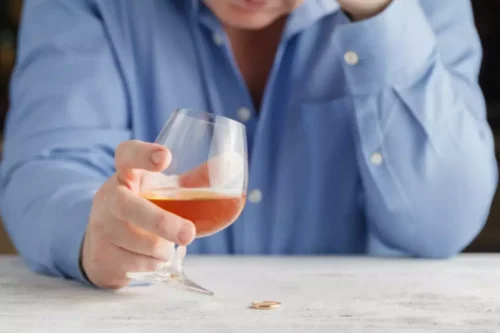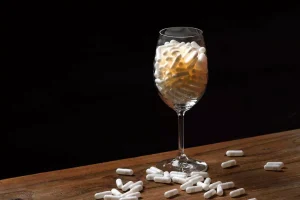
Whether you reach for a rocks glass or a stem glass, these are a handful of drinks that are making us rethink spirits and how delicious an alcohol-free drink can taste. Kombucha is a fizzy, fermented tea drink that some people drink as an alternative to alcohol. It is rich in probiotics which can help foster healthy gut flora, support the immune system, and reduce inflammation. “When I was pregnant and couldn’t https://ecosoberhouse.com/ drink, I’d get half ginger ale, half club soda with a splash of cranberry juice for flavor and color as it satisfies both the bubbly and refreshing factors,” says Burak. Raising a glass of wine in honor of a birthday, wedding, or other special occasion is common, but the joyful spirit feels just as good with alcohol-free wine. Wine enthusiasts focus on the tasting notes of their favorite wines.

Popular Alcohol Alternatives That I Wouldn’t Buy
For Bitter For Worse’s The Saskatoon ($30 for a 750 mL bottle at the time of publication) was similarly too bitter, tasting of tannic hibiscus tea with black pepper and prevailing grassy, bitter notes. Likewise, the company’s Rose City Fizz was too intensely flavored with medicinal herbs, and its Smoky No. 56 was overpowered by smoke. Curious Elixir No. 1, Curious Elixir No. 3, and Curious Elixir No. 4 ($40 for four 355 mL bottles at the time of publication) were off-balance and odd-tasting, with unpleasant funks and strange industrial flavors. Casamara Club Fora and Casamara Club Isla ($55 for a 12-pack of 355 mL cans at the time of publication) were only faintly flavored, offering mere whispers of strawberry and ginger, respectively, mixed into cans of seltzer. Amass Riverine ($35 for a 750 mL bottle at the time of publication) is peppery, astringent, and overwhelmingly piney.
Zero: A New Approach to Non-Alcoholic Drinks – Reserve Edition
Each bottle has no added sugar and is infused with adaptogens and herbs aimed at helping with stress (although, in my opinion, these have enough going for them that this selling point feels more like an afterthought). As a gin fan, I loved the juniper cucumber flavor (billed as a French 75 meets a Cucumber Collins), which healthy alternatives to alcohol tastes just like a summery gin cocktail without the booze. The blood orange ginseng was also delicious, like a more complex Emergen-C (which, yes, is a compliment). The brand’s intent was to make a drink that’s as sophisticated and meaningful as an alcoholic beverage for a dinner party — but without the booze.
Healthiest alcoholic drinks
- The current events of the pandemic and the election in the U.S. certainly qualify as the type of stressful events known to trigger anxiety, stress, and increased drinking.
- Joy Organics offers premium CBD oil tinctures that are made entirely of USDA Certified Organic ingredients.
- Most of us, if we’re going to have an alcoholic drink, tend to have one in the evenings.
- Because the umbrella of nonalcoholic beverages includes a wide variety of products, it’s hard to definitively say whether nonalcoholic beverages are universally healthier than alcoholic ones.
- According to Courtney D’Angelo, MS, RD, author at Go Wellness, going decaf may be the answer.
But if I had to, it’d probably be the Ginger Dram, which is reminiscent of a Moscow Mule cocktail. With flavours like Yuzu Tokyo Tonic and Barrel Smoked Cola, these premium mixers double up as drinks in their own right. But if I had to, it’d probably be the Ginger Dram, which is reminiscent of a Moscow Mule cocktail, or the AF Mojito.

Picamilon is an excellent choice for those seeking a balance between tranquility and mental alertness without resorting to substances that may come with unwanted side effects. But one special type of ketone called 1,3-butanediol mimics the effects of alcohol. One of many cannabinoids in cannabis, CBD relaxes and de-stresses without the psychoactive effects characteristic of pot (THC). CBD comes in the form of flowers, tinctures, or food and drink infusions.


Infusing sparkling water with natural fruit flavors, herbs, or even bitters can create a refreshing and sophisticated alternative to alcoholic drinks. Alcohol really can’t be categorized as healthy–after all, it is a toxin20, and drinking in excess can lead to disease and premature death. So if you’re going to go ahead and indulge, be mindful of what you’re really drinking.
- But, as a booze journo who essentially drinks for a living, I was keen to find out if there was any truth in the drinks promising all of the fun but none of the consequences.
- You can explore adding simple syrups or flavor enhancers to some soda water (or regular water) as well.
- No one is going to mistake a milkshake for alcohol, but like alcohol, they are a drink typically reserved for a treat or special occasion.
- If you’re really looking for zero, be sure to check the label to see if it’s alcohol free.
- I’d happily reach for it as a non-alcoholic alternative, even without the mood-manipulating claims, but after a couple of drinks I’m sure I feel relaxed.
- One of many cannabinoids in cannabis, CBD relaxes and de-stresses without the psychoactive effects characteristic of pot (THC).
Serving wine sans alcohol still has the same flavors and aromas, whether you’re pairing an alcohol-free wine with a fancy dinner or hosting a wine tasting. While alcohol-free spirits tend to be on the more expensive end, despite containing no alcohol, Seedlip’s selection of non-alcoholic gins and low-calorie vodka is occasionally on sale. Ish Spirits does a great collection of alcohol-free tequila, rum, and cocktails. And for more insight into the world of alcohol-free drinks, plus some recipes to make yourself at home, check out some of the best quit lit books and audioguides. “A zero-calorie soda or sparkling water with a slice of grapefruit is so delicious and a glass of water with ice and lime will also do the trick and keep you hydrated.”
- Luckily, as more people are drinking less, there’s been an uptick in more drink companies creating nonalcoholic options.
- “A daily drink may calm your anxiety, but it also suppresses your metabolism,” Kober says.
- As far as functional fungus goes, lion’s mane seems to be king of the pride — touted as being able to enhance cognitive function, boost thinking speed and memory, help with concentration and focus, and reduce inflammation.





